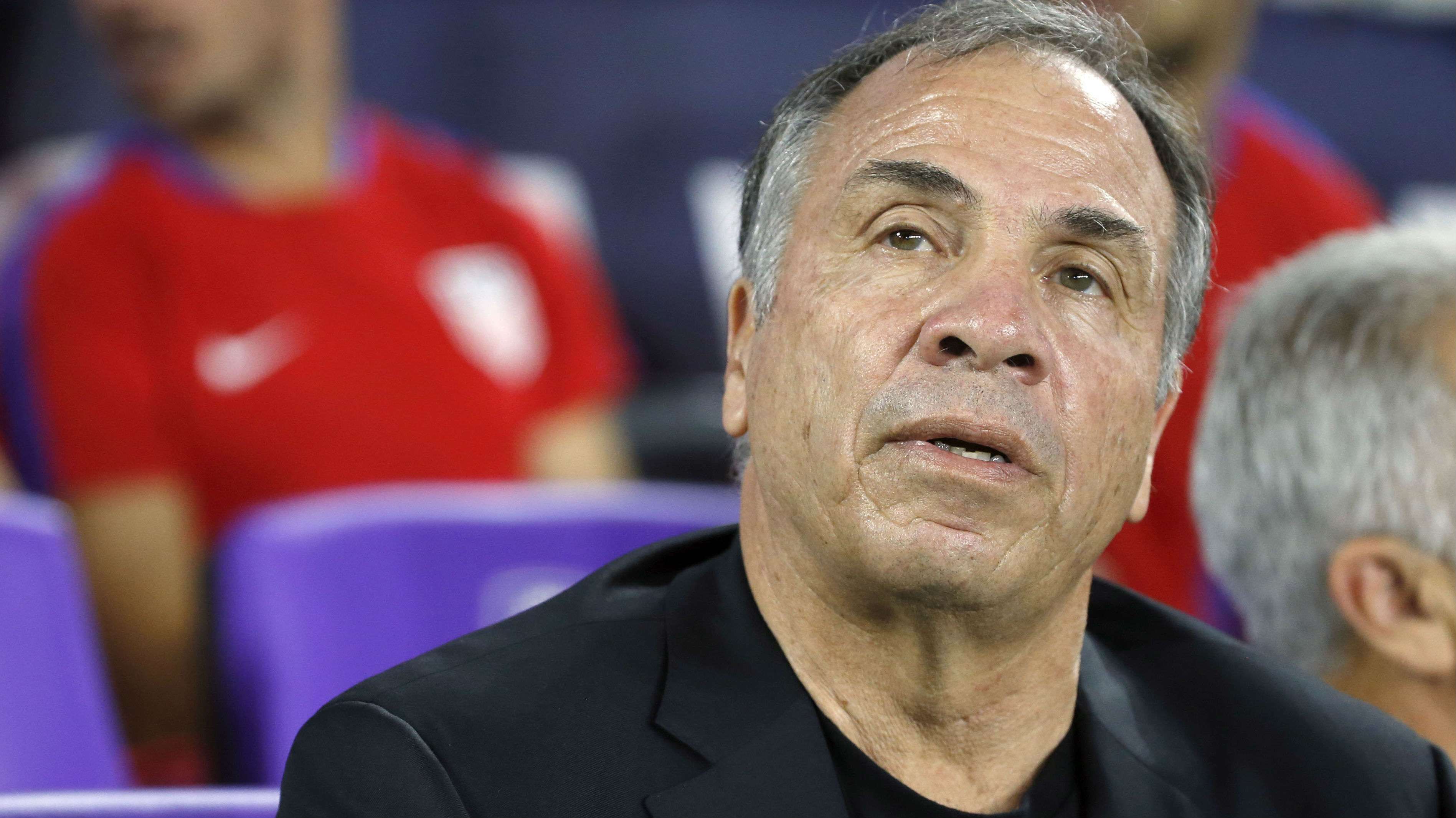PORT OF SPAIN, Trinidad — Bruce Arena doesn't spend much time complaining about the adverse conditions his U.S. national team endures on the road in CONCACAF World Cup qualifying. But on a day when he watched his players train on a field with standing water, surrounded by what was essentially a rain-created moat , the coach couldn't help but feel like people don't fully appreciate how tough CONCACAF qualifying can be.
"I would love to see one of these hotshot teams from Europe come here and play in our CONCACAF qualifying, to really get a taste of this and see what that’s about," Arena said on Monday, ahead of Tuesday's U.S. qualifier against Trinidad & Tobago. "This is very challenging. This is like survival of the fittest. They could do one of those TV shows on this. Who will survive in the end? That’s basically what this is."
USA 5/1 to beat Trinidad & Tobago 2-0
Whether it's altitude, heat, extreme weather, poor playing fields, or any combination of them, the U.S. seldom finds itself playing road qualifiers under anything close to resembling normal conditions in CONCACAF. Arena's point about wanting to see a European power navigate CONCACAF wasn't as much about him thinking the teams in the region would be tougher competition, but rather the conditions found in most CONCACAF countries would make it a grueling and lengthy challenge that often goes underestimated by those unfamiliar with the region.
It should be noted that former U.S. coach and German World Cup-winner Jurgen Klinsmann said similar things as he navigated through CONCACAF as U.S. coach for the first time.
Next Match
"Europeans and South Americans may think that this region looks pretty easy because they don’t play here and they never experienced it," Klinsmann said in 2012. "European coaches tell me you should qualify no problem, and I tell them, ‘Why don’t you come over and I’ll take you to Guatemala and Costa Rica and Jamaica and you’ll see.' It would be an eye-opener for a lot of people in Europe to see our qualifying campaign.
"But at the end of the day, we need to qualify, we have to qualify, and we will qualify," Kinsmann added. "But you have to prepare yourself in a perfect way.”
Tuesday's U.S. match against Trinidad & Tobago is being played at Ato Boldon Stadium, a small venue that replaced the normal national team home — the much larger Hasely Crawford Stadium — and recent heavy rains left the playing field waterlogged. Standing water is all around the field, and in some parts of the playing field itself. Even if, as U.S. Soccer president Sunil Gulati suggested on Monday, there is enough time to remove most of the water on and around the playing field, the pitch itself isn't likely to be one conducive to the kind of fast-paced attacking soccer the U.S. displayed in beating Panama last Friday in Orlando.
"It definitely changes the way the game is going to look," Arena said. "It’s going to be a slow game, probably a little bit sloppy, and a little bit different than we’ve seen in any of the qualifying games. We’ll have to adapt to the conditions on the field."
Asked whether he could recall having a team play in those kind of conditions before, Arena struggled to think of a similar scenario.
"Not like this," Arena said. "The fields are different, but this is obviously one that’s going to be perhaps a little wet, and soggy and impact your footing, your passing, your running, etc."
Arena wasn't pleased with the conditions, but he also wasn't about to use it as an excuse for a potentially bad result in a match where a win or (most likely) a draw by the U.S. will ensure a place at the 2018 World Cup.
"There are games played on artificial fields throughout the world," Arena noted. "We’ve played on not-perfect fields elsewhere. It’s all part of it. I’ve seen some games in Europe this week, in some of the smaller countries, where the conditions were not perfect either.
"Apparently there was a game in the United States where it snowed, and that’s OK because it was in the United States," he continued, referring to the U.S. World Cup qualifying win against Costa Rica in 2013, which was played in a snow storm. "These things happen. Hopefully it doesn’t snow tomorrow."
Arena added: "Whatever the conditions are they’re going to be the same for both teams. I don’t think there’s any politics surrounding this. I don’t think a couple of years ago in Denver the U.S. had control of the climate and conditions, and I don’t think Trinidad is making it rain and all of that. It is what it is and we’re going to play the game."


